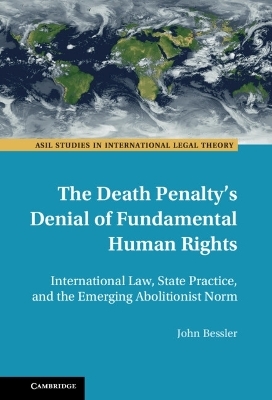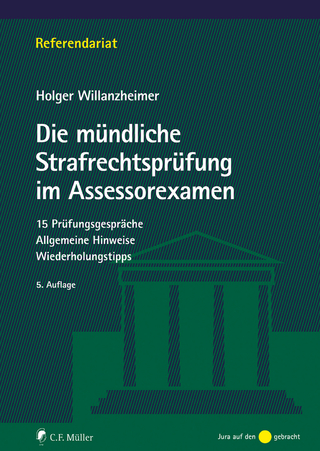
The Death Penalty's Denial of Fundamental Human Rights
International Law, State Practice, and the Emerging Abolitionist Norm
Seiten
2022
Cambridge University Press (Verlag)
978-1-108-84557-1 (ISBN)
Cambridge University Press (Verlag)
978-1-108-84557-1 (ISBN)
The Death Penalty's Denial of Fundamental Human Rights details how capital punishment violates universal human rights-to life; to be free from torture and other cruel, inhuman and degrading treatment or punishment; to be treated in a non-arbitrary and non-discriminatory manner; and to be treated with dignity.
The Death Penalty's Denial of Fundamental Human Rights details how capital punishment violates universal human rights-to life; to be free from torture and other forms of cruelty; to be treated in a non-arbitrary, non-discriminatory manner; and to dignity. In tracing the evolution of the world's understanding of torture, which now absolutely prohibits physical and psychological torture, the book argues that an immutable characteristic of capital punishment-already outlawed in many countries and American states-is that it makes use of death threats. Mock executions and other credible death threats, in fact, have long been treated as torturous acts. When crime victims are threatened with death and are helpless to prevent their deaths, for example, courts routinely find such threats inflict psychological torture. With simulated executions and non-lethal corporal punishments already prohibited as torturous acts, death sentences and real executions, the book contends, must be classified as torturous acts, too.
The Death Penalty's Denial of Fundamental Human Rights details how capital punishment violates universal human rights-to life; to be free from torture and other forms of cruelty; to be treated in a non-arbitrary, non-discriminatory manner; and to dignity. In tracing the evolution of the world's understanding of torture, which now absolutely prohibits physical and psychological torture, the book argues that an immutable characteristic of capital punishment-already outlawed in many countries and American states-is that it makes use of death threats. Mock executions and other credible death threats, in fact, have long been treated as torturous acts. When crime victims are threatened with death and are helpless to prevent their deaths, for example, courts routinely find such threats inflict psychological torture. With simulated executions and non-lethal corporal punishments already prohibited as torturous acts, death sentences and real executions, the book contends, must be classified as torturous acts, too.
John Bessler teaches at the University of Baltimore School of Law and the Georgetown University Law Center.
Introduction; 1. The death penalty: from draconian legal codes to the enlightenment; 2. The abolitionist movement: state practice, international law, and global progress; 3. Death threats and the law of torture: the death penalty's inherently cruel and torturous characteristics; 4. Human dignity and the law's evolution: prohibiting capital punishment through a jus cogens norm; Conclusion.
| Erscheinungsdatum | 07.12.2022 |
|---|---|
| Reihe/Serie | ASIL Studies in International Legal Theory |
| Zusatzinfo | Worked examples or Exercises |
| Verlagsort | Cambridge |
| Sprache | englisch |
| Maße | 158 x 235 mm |
| Gewicht | 710 g |
| Themenwelt | Recht / Steuern ► EU / Internationales Recht |
| Recht / Steuern ► Strafrecht ► Strafverfahrensrecht | |
| ISBN-10 | 1-108-84557-6 / 1108845576 |
| ISBN-13 | 978-1-108-84557-1 / 9781108845571 |
| Zustand | Neuware |
| Informationen gemäß Produktsicherheitsverordnung (GPSR) | |
| Haben Sie eine Frage zum Produkt? |
Mehr entdecken
aus dem Bereich
aus dem Bereich
Buch | Softcover (2023)
C.F. Müller (Verlag)
CHF 33,55
Buch | Softcover (2024)
C.F. Müller (Verlag)
CHF 33,55
mit Auszügen aus Gerichtsverfassungsgesetz, EGGVG, …
Buch | Softcover (2024)
dtv Verlagsgesellschaft
CHF 17,95


